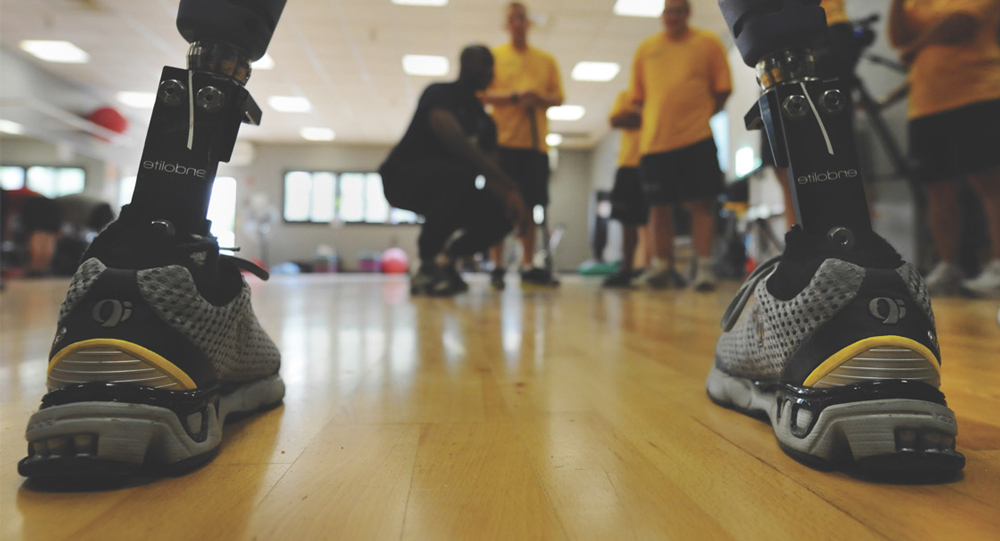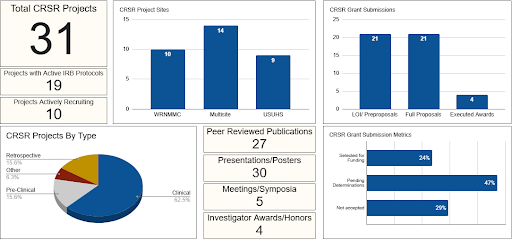NCAA-DEPARTMENT OF DEFENSE (DOD) CONCUSSION ASSESSMENT, RESEARCH AND EDUCATION (CARE) CONSORTIUM
CRSR is the coordinating center for the CARE Consortium military cohort, partnered with the military service academies, Naval School Explosive Ordnance Disposal, National Intrepid Center of Excellence, and Intrepid Spirit Center Network to follow participants longitudinally to evaluate the acute, intermediate, and long-term effects of mild traumatic brain injury (mTBI) and head impact exposure (HIE). As of 2021, the Consortium has enrolled 50K+ participants and tracked 5K+ concussions, resulting in the introduction or improvement of concussion care guidelines at the military service academies, increased collaboration across Intrepid Spirit Network sites, and over 80 peer-reviewed publications aimed at informing and advancing warfighter brain health initiatives.
PERSONALIZED REPETITIVE TRANSCRANIAL Magnetic stimulation (pRtms) as a treatment for chronic neck pain
This study is a prospective randomized double-blinded, placebo-controlled clinical trial. It aims to describe participants' perceptions of PrTMS treatment and its perceived effect on their pain while also assessing the efficacy of PrTMS therapy in reducing pain for military health system beneficiaries with chronic neck pain who are receiving standard of care at Walter Reed National Military Medical Center (WRNMMC). Additionally, it is our intent to examine the short- and long-term changes in self-reported quality of life and biopsychosocial symptoms related to pain in military health system beneficiaries receiving PrTMS therapy.
Neural-enabled prosthesis for upper extremity amputees (sensory hand)
This project is designed to evaluate the feasibility of the Adaptive Neural Systems Neural-Enabled Prosthetic Hand (ANS-NEPH) system by gathering initial data on the design concept, safety, and utility of providing stimulation to deliver sensory information to patients with upper-extremity amputation. This system will provide sensory feedback using sensors embedded in the hand and electrodes implanted in the fascicles of the peripheral nerve for seamless integration.
Wounded warrior service dog program (wwsdp)
The WWSDP aims to establish best practices for raising, training, and providing service dogs to individuals with physical, cognitive, and emotional impairments, focusing on U.S. Service Members and Veterans with disabilities as well as furnishing service dogs through Service Dog Training Organizations (SDTOs). The project will also identify disparities in service dog access among underserved populations. By developing and disseminating these best practices through various channels, the project intends to increase access to high-quality service dogs, advance the field of animal assistive therapy, and promote the humane treatment and safety of canines.
CRSR is headquartered at the Uniformed Services University of the Health Sciences (USU) in Bethesda, Maryland. The mission of USU is to support the readiness of America's Warfighter and the health and well-being of the beneficiary community by educating and developing uniformed health professionals, scientists and leaders; by conducting cutting-edge, military-relevant research; by leading the MHS in key functional and intellectual areas; and by providing operational support to units around the world.
General Inquiries
Stacey Harcum
Senior Operations Manager
The Henry M. Jackson Foundation for the Advancement of Military Medicine (HJF) employee
collaborating with The Center for Rehabilitation Sciences Research (CRSR)
Assisstant Professor, Department of Physical Medicine and Rehabilitation
Uniformed Services University of the Health Sciences
stacey.harcum.ctr@usuhs.edu
(301) 550-0495
Media Inquiries
Sharon K. Holland
Deputy Vice President for External Affairs
Uniformed Services University of the Health Sciences
sharon.holland@usuhs.edu
301-295-3578

